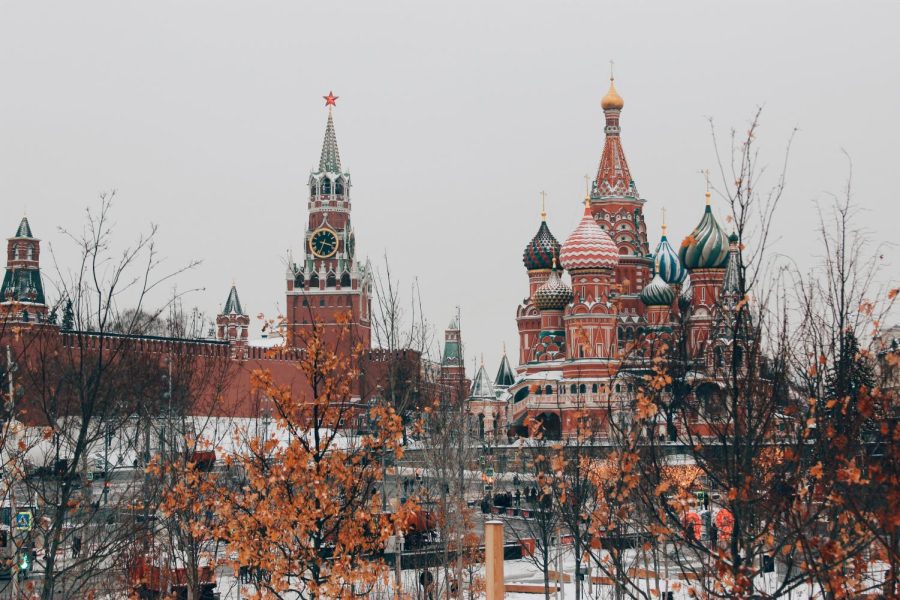OPINION: Gorbachev’s legacy is more complicated than we think
The Kremlin, where Gorbachev once called home, still stands today as a symbol of Russian dominance. Photo by Michael Parulava.
September 25, 2022
Many key figures have changed the course of human history. One of these figures, often glossed over due to his failure to bring the Soviet Union into the 21st century, is Mikhail Gorbachev. Born a peasant, Gorbachev quickly rose to power, becoming instrumental in the dissolution of the Soviet Union during his six-year reign. While he is widely perceived as weak and ineffectual within Russia today, his recent passing can help us draw light upon the positive impacts of his reign.
As a leader of the Soviet Union, Gorbachev was often seen as a pariah who allowed the country to splinter into the numerous nations that exist now. He was recently called a co-author of the unfair world order by Russian statesman Oleg Morozov, referencing Russia’s decline on the world stage after the fall of the Soviet Union. His record is not clean by any means; he caused an estimated 368 deaths by crushing freedom protests in Kazakhstan, Azerbaijan and Georgia during his reign. However, just as some citizens were repressed under his rule, other citizens celebrated freedom as a result of his actions.
In 1989, Germany was still divided into two nations, and there was little interaction between the free, capitalist west and the oppressive, communist east. These tensions came to a head in the city of Berlin, which was separated by the physically imposing and well-patrolled Berlin Wall. Just like Germany itself, Berlin’s west was full of wealth and opportunity, while the east was poor and under Moscow’s thumb. Deserters who attempted to escape to the west over the Berlin Wall were often shot on sight. The Berlin Wall was such a significant symbol of the divides of the Cold War, that President Ronald Reagan famously told Gorbachev to tear it down when he visited West Berlin in 1987.
When protests in Berlin reached an all-time high in 1989, Gorbachev commanded Soviet soldiers to not interfere. By the end of the year, the Berlin Wall had fallen, and in 1990, Gorbachev signed off on a treaty reuniting Germany. Gorbachev is remembered fondly as “Gorbi” to many Germans, as his actions directly led to the Soviet withdrawal from their homeland. While current Russian President Vladimir Putin called German reunification Gorbachev’s mistake, it can be argued that it was instead the act of a leader who wanted to end the oppression and the horrors of the Cold War. Gorbachev would later allow other communist states, such as Albania and Poland, to free themselves from Soviet influence and become democratic.
In 1989, during the closing days of the Cold War, Gorbachev withdrew Soviet troops from a ten-year conflict in Afghanistan. While prior Soviet leaders initially invaded Afghanistan in 1979 to prop up a pro-Soviet government, Gorbachev realized that the war was inefficient and too many resources were being wasted. Gorbachev recognized the shortcomings of the Soviet economic system, so he attempted to restructure it using capitalist features in a process known as perestroika. The Soviet Union was exceptionally authoritarian, which Gorbachev fought to change with a series of reforms by the name of glasnost. While perestroika failed to pull Russia out of a recession, and glasnost failed to bring democratic ideals to Russia permanently, Gorbachev at least attempted to create some upheaval within a stagnating state. Dictators such as Joseph Stalin built the Soviet Union using fear and deception, and when such strategies were cast aside by Gorbachev, the Soviet Union destabilized. In 1991, the Soviet Union dissolved, and Gorbachev stepped down as leader.
Gorbachev failed in his goal of preserving the Soviet Union, so he is rarely seen as having the same reverence as other historical figures. However, he brought the Cold War to an end and helped reunite Germany. Even though Gorbachev is seen as weak by Russians, people shouldn’t be so hasty to discredit his accomplishments.









